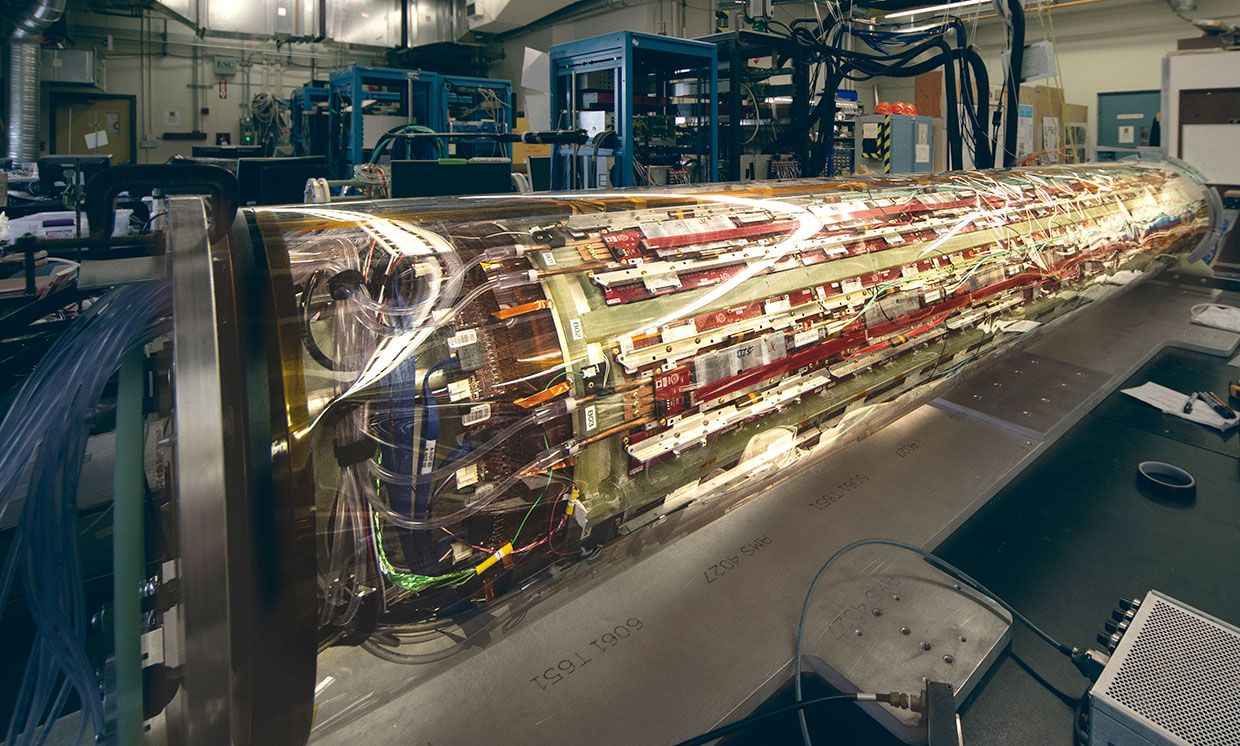New ALPHA-g Detector Poised to Search for Signs of Anti-Gravity
Scientists at CERN are racing to fire up a detector that will explore the effects of gravity on antimatter—before the whole facility shuts down for two years

Deep underground, within the concrete walls of CERN, Switzerland’s world-famous particle accelerator, lies a 200-kilogram machine encased in a shield of argon and carbon dioxide gases. After years of careful design and assembly, the device is nearly ready to make its debut. While the detector looks futuristic, it’s actually quite similar in function to previous generations of detectors—with one exception: this one was crafted to measure the effects of gravity on antimatter.
Blueprints for this detector, dubbed ALPHA-g, were first drawn in 2013. In recent months, its creators have worked around the clock in Vancouver, Canada, to finish building it. Finally, in July, ALPHA-g was shipped via cargo plane to CERN, the only location in the world that can provide the amount of antimatter needed for these experiments.
No comments:
Post a Comment